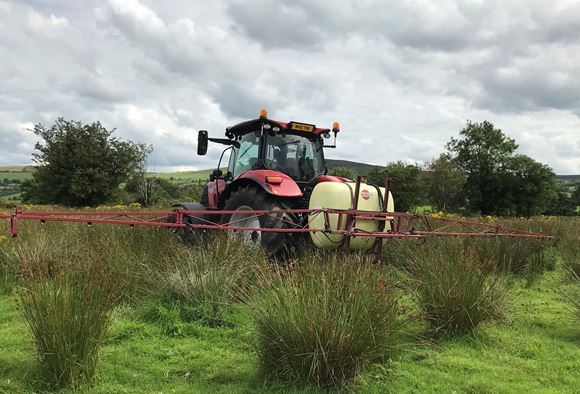There were no exceedances for pesticides in the public drinking water supplies in Donegal in 2022, Uisce Éireann has confirmed.
However, the utility is urging domestic gardeners, farmers, grounds keepers and other users of pesticide products to consider the environment and whether pesticide use is necessary in the first instance.
There was a significant reduction in the number of exceedances for pesticides in public drinking water supplies in Donegal last year, according to Uisce Éireann.
In 2021 the utility detected 3 exceedances for MCPA and Bentazone as part of its ongoing monitoring, however, this had reduced to zero in 2022.
MCPA is still the most commonly detected pesticide in drinking water sources and is present in many commonly used herbicide products used to control thistles, docks and rushes.
However it often ends up in drinking water supplies.
Uisce Éireann is asking users of any herbicide or pesticide products in Co Donegal to continue to consider the vulnerability of the water supplies to pesticide contamination and the importance of these supplies to the local homes and businesses in the community.
Uisce Éireann and the NPDWAG are asking the farming community, greenkeepers, grounds keepers, and also domestic users of pesticides, to consider in each case whether they need to use pesticides at all.
Pesticides must only be used where strictly necessary and only after the possibility of using other control methods has been carefully considered.
Minimising pesticide use not only helps to protect water quality but also has multiple wider environmental benefits.
Thomas Gibbons, Uisce Éireann’s Regional Drinking Water Compliance Specialist said there have been no exceedances for pesticides in the past year in Donegal.
“While our consultation with the HSE has concluded that the levels we are detecting do not represent a threat to public health, they are still however undesirable in drinking water and it is therefore imperative that users of pesticides are mindful of best practice when using herbicides or pesticides and seek out alternatives,” he said.
Adding to this, Dr Aidan Moody, DAFM and Chair of NPDWAG, said it is important that we maintain our focus on this issue and that there is a sustained effort by stakeholders to continue the good progress that has been made in recent years.
“Users of pesticides must always consider the possibilities for alternative control methods in the first instance and if the application of pesticides is considered essential make sure that they follow best practice measures to protect water quality,” he said.










